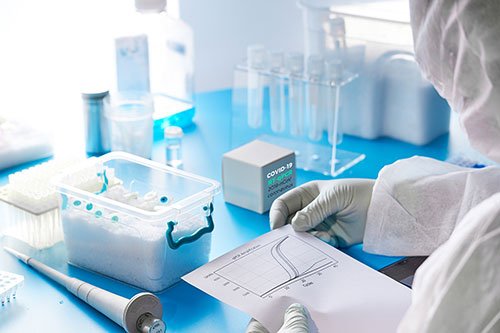
What is the difference between RNase, DNase-Free and Sterile?
The difference between RNase, DNase-free and sterile laboratory supplies and equipment is nuanced. However, it is important to understand the difference in purity grades when trusting lab supplies and equipment to deliver accurate, consistent results. In the field of molecular biology, the smallest trace of contamination of RNases or DNases in the lab setting can affect sensitive analyses.
Globe Scientific is committed to providing our customers with glassware, plasticware, and benchtop equipment that meets the highest standards of quality. Read on to learn about the importance of purity grades and how they impact the lab setting.
Understanding Purity Grades
Medical equipment and products are graded by level of purity, which is critical to protect sensitive lab samples from degradation and contamination.
- Sterile defines a product as absent of any living organisms (bacteria, yeast, fungi, spores); however, nonviable biologic contaminants may not be removed through standard sterilization processes.
- RNase-free defines a product free of RNases (or Ribonulceases, enzymes that degrade RNA) and is required to prevent RNase contamination, a prerequisite in molecular biology workflows as RNA is highly sensitive and can be quickly destroyed by RNases.
- DNase-free defines a product free of DNases (or Deoxyribonucleases, enzymes that degrade DNA) and is required to prevent DNase contamination, which creates significant consequences for genetic analyses.
To run a successful laboratory, the selection of appropriate purity grades is essential in maintaining the integrity of your samples and laboratory workflow, and of course, in achieving the best possible outcomes.
RNase, DNase-Free vs. Sterile in the Lab Setting
The relevance of purity grades is highlighted in a laboratory setting as it affects laboratory practices and outcome accuracy. As professionals in this setting know, one of the highest priorities is to ensure contaminant-free labware to exact reliable results and meticulously detailed analyses.
The purity grade that is suitable for one type of workflow may not be for another. Equipment verified as sterile is acceptable for cell cultures, plant and animal-derived products, algae, and microbiology applications. But to protect against destructive enzymes that threaten delicate biologic material, labware needs to be certified RNase, DNase-free, applications for this purity grade include genomics, gene therapy, DNA and RNA sequencing, exosomes, and proteomics.
Learn More about Globe Scientific
Globe Scientific has been a trusted name in laboratory supplies for 38 years and offers a variety of sterile and certified RNase, DNase-free products. To learn more about how we can fulfill your laboratory needs, contact us today.
